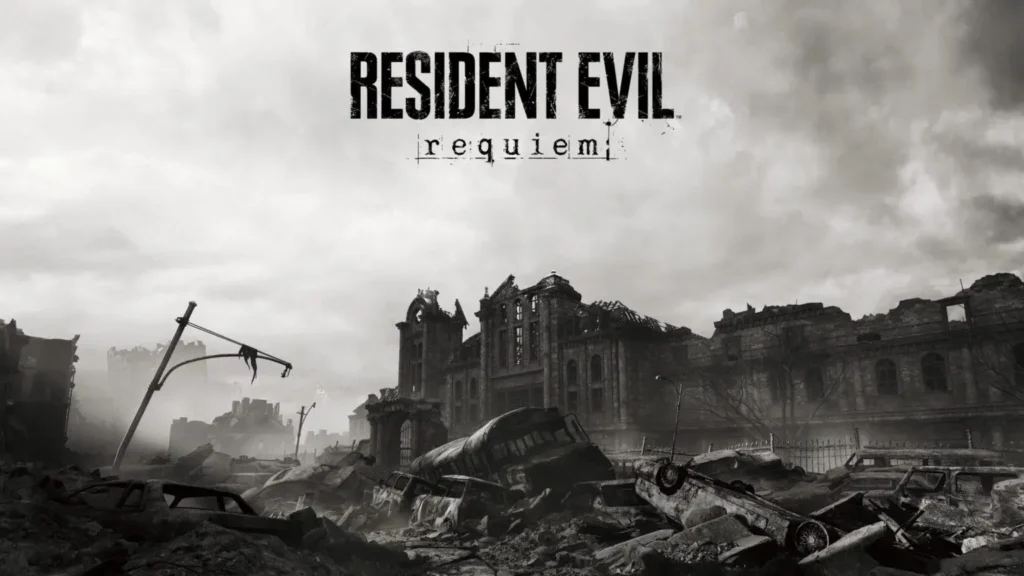the next chapter
Resident Evil Requiem, the ninth mainline entry in Capcom’s defining horror saga, is officially open for pre-orders. With a confirmed release date of February 27, 2026, the announcement has ignited a wave of anticipation across the gaming world. Requiem is more than another sequel; it signals a tonal shift, a thematic escalation, and a return to deeper terror. Capcom is positioning this title as a major evolution—one that blends decades of creative experience with a new technological threshold.
Players can choose from the Standard Edition or a Deluxe Edition packed with added content. But every pre-order—regardless of version—comes with a notable bonus: Grace’s Costume: Apocalypse. In a franchise where costume titles often hint at emotional subtext or narrative tension, “Apocalypse” stands out. It feels like an omen. A whisper of the game’s mood before a single cutscene has even been shown.
Requiem arrives charged with symbolism and expectation, and this early glimpse at its world sets the stage for something grim, intimate, and transformative.
leg
Resident Evil is a series built on reinvention. Each numbered entry has redefined its era, from the fixed-camera claustrophobia of the 1996 original to the revolutionary third-person perspective of Resident Evil 4, and later the immersive, suffocating first-person approach of Resident Evil 7. The remakes sharpened nostalgia into modern tension, while Village balanced gothic spectacle with psychological storytelling.
Requiem does not appear to be chasing reinvention in the same way. Instead, it leans into evolution—a natural convergence of every experiment, every pivot, every breakthrough the series has undergone. Capcom describes the game as combining “technological advancements” with the team’s “depth of experience,” phrasing that suggests a project aiming to draw from the full scope of Resident Evil’s identity rather than a single era.
This is the first mainline game that feels like it carries the weight of the entire franchise on its back.
what
Capcom naming conventions are never arbitrary. A “requiem” is a ritual for the dead, a composition of mourning, reflection, and transformation. It signals that this title may confront endings rather than beginnings. The Resident Evil universe is built on unresolved consequences: failed experiments, fractured families, corporate corruption, and survivors who carry their trauma into every new setting.
The title hints at a narrative that forces characters to confront what has been buried—emotionally, scientifically, or historically. A requiem suggests introspection, finality, and reckoning. The ninth entry could very well close arcs that have lingered for decades or open wounds that past games only gestured toward.
Capcom’s early emphasis on “rich characters” reinforces this. Requiem appears to be a story driven not just by monsters and mutations, but by human fear, guilt, memory, and choices. Horror becomes personal again, intimate and suffocating in a way Resident Evil has always done best.
show
Very little has been revealed about the cast, but the pre-order bonus alone hints that Grace is central to the experience. Resident Evil protagonists often stand as emotional anchors—figures wrestling with both external threats and internal fractures. If Grace is receiving spotlight this early, her role is likely essential to both the lore and the emotional spine of the game.
The “Apocalypse” costume implies a character connected to collapse: someone shaped by devastation, survival, or irreversible loss. Outfits in Resident Evil frequently act as visual storytelling devices, reflecting who a character is beneath the fear. Grace’s wardrobe choice might be an expression of resilience, or despair, or transformation.
Requiem seems poised to blend action and psychological unraveling, pushing characters into spaces of vulnerability that mirror the game’s tension-filled environments.
style
The RE Engine has aged like fine weaponry, improving with each new title until its realism, lighting, and animation techniques became genre benchmarks. Resident Evil Requiem will be the most advanced use of this engine yet, the culmination of nearly a decade of iteration.
Capcom’s promise of “more immersive gameplay than ever before” hints at enhancements across environmental fidelity, enemy intelligence, sound design, and emotional expression. The atmospheric density seen in Village will likely deepen into something harsher and more oppressive. Rooms may feel more reactive. Shadows more predatory. Threats more unpredictable.
The RE Engine has always excelled at rendering the uncanny—faces too human, spaces too still, silence too loaded. Requiem will push this uncanny edge into new territory, crafting a world where every creak, breath, and flicker of light feels dangerous.
Technological advancement here is not about spectacle. It’s about suffocation. The environment itself becomes part of the horror.
pulse
Capcom’s wording suggests a renewed commitment to the core of what made Resident Evil legendary: the feeling of being hunted, underprepared, and utterly alone. While recent entries have balanced action and tension, Requiem appears ready to tilt the scale toward desperation again. Players should expect a world where resources matter, where escape is never guaranteed, and where every encounter feels alive and unpredictable.
Resident Evil is at its strongest when vulnerability is the central mechanic. Requiem appears prepared to restore that vulnerability with precision. Whether delivered through labyrinthine environments, enemy behavior that adapts moment by moment, or pacing that never allows comfort, the game aims to make fear feel personal again.
This is survival horror designed not just to shock but to cling to the player long after the screen fades to black.
upcoming
Capcom planting its flag this early in 2026 signals immense confidence. February has become a prestige month for release schedules, a space reserved for major titles expected to dominate critical conversations. Requiem’s placement suggests that Capcom sees this game not as a regular entry, but as a defining event—one that will shape the year’s discourse around horror, storytelling, and visual craft.
The lead-up will bring trailers, deep dives, character reveals, and endless speculation. But even in this initial stage, it is clear that Requiem is being positioned as a flagship release.
This is Capcom saying:
We know exactly what we have. And it’s something big.
fin
Resident Evil Requiem feels like more than a continuation. It feels like a threshold. A point where the series’ history, trauma, and innovation converge into something darker, sharper, and more emotionally charged than anything before it.
With pre-orders open and the promise of deeper terror on the horizon, the stage is set. Grace’s mysterious Apocalypse attire, the emphasis on character depth, the tonal weight of the title, and the technological muscle of the RE Engine all point toward a game ready to challenge both longtime fans and newcomers.
On February 27, 2026, the requiem begins.
A song for the past.
A scream for the future.
And a new nightmare for everyone willing to step back into the dark.
No comments yet.








